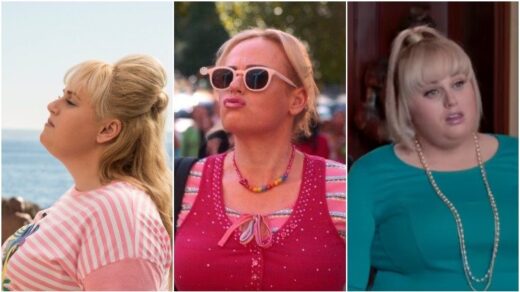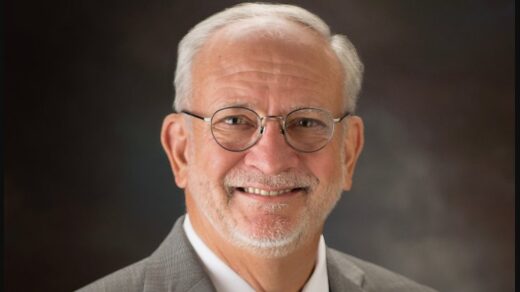HBO’s ‘Coastal Elites’ Is a 90-Minute Anti-Trump Rant
When the premise for HBO’s Coastal Elites was announced, a pretty common reaction was, “Well, here come the Zoom movies.” Originally intended as a live theater production from playwright and screenwriter Paul Rudnick, the play had to be transformed into a socially-distanced film because of the COVID-19 pandemic, and then rewritten as events like the Black Lives Matter movement and the lead-up to the election unfolded.
The film declares itself as “five desperate confessions from people barely coping with the new abnormal,” which adds up to a 90-minute therapy session about the failings of President Donald Trump and our divided political climate. It’s kind of the liberal version of those constant think pieces about what really motivates MAGA-hat-wearing people in small town diners — and if you are a regular reader of The Advocate, this play is aimed squarely at you, sometimes uncomfortably so.
Whether Coastal Elites works as a movie depends on your comfort level with one-person shows, or at least vlog-style storytelling on YouTube. Monologues to camera can be a tough sell, relying heavily on how well the actor can connect with the audience — particularly in this case, since most of the characters are actually speaking to some other person we can’t see or hear. Fortunately, we have a cast of easy-to-like actors who give solid performances across the board: the unforgettable Bette Midler, Schitt’s Creek’s Dan Levy, Insecure’s Issa Rae, our favorite American Horror Story regular Sarah Paulson, and Kaitlyn Dever from criminally underrated comedy Booksmart.
[embedded content]
The result is admittedly a bit clumsy, but it’s also relatable once you get used to it, because this is life for most of us right now. We’re stuck alone in our apartments, having endless Zoom meetings (if we’re lucky!) and spending way too much time doom-scrolling through social media, where the Trump administration is serving up fresh bullshit multiple times a day. And we know it’s not productive and only makes us feel stressed and self-absorbed, but we can’t seem to make ourselves stop.
“I never felt like this,” sighs Midler’s character Miriam, a Jewish New York Times devotee and Hillary supporter being detained in a Manhattan police station after getting into a fight with a Trump fan. “I never went to bed in a rage and woke up having a panic attack. I didn’t spend every day in anger and dread. And I didn’t hate those other people.”
Levy plays Mark, an out-and-proud gay actor in Los Angeles, on a call with his therapist after auditioning to play the first openly gay superhero in a major studio film. If you’d like some context for how painfully funny this scene is, may I direct you to one of the many, many articles from queer publications about a nameless background character in a Marvel movie who was undeniably gay for 30 whole seconds and was never heard from again.
In a monologue that doesn’t stray too far from Levy’s own experience, Mark describes the tension of feeling grateful for LGBTQ+ representation, desperately wanting to play the lead hero instead of the gay sidekick, and being asked to exploit his own queerness during the audition. “Whatever you’re going to do in there, you won’t own,” he tells himself, “because you’re not celebrating your queerness, that’s not what this is. Because it’s being demanded of you by a straight executive who wants a cartoon.”
The Black Lives Matter movement is represented by Rae’s Callie, the daughter of a wealthy Black businessman. She comes across a bit distant from the protests in the streets, with her pristine activism tee shirt and airy apartment, but she makes the valid point that Trump and his family are desperate to be accepted by the very “coastal elites” they’re always insulting at campaign rallies. Recounting a meeting with Ivanka to a friend, Callie says, “‘All my gay friends hate you because of Pence and the trans ban, and trying to repeal gay marriage. You post pictures of yourself hugging the Evangelicals who say that gay people are going to hell.’ And [Ivanka] says, oh, but gay people know that I love them, I’m from New York!”
Of all the actors, Paulson does the best job of making this format work. It helps that her meditation guru character Clarissa is speaking directly to the audience through a YouTube livestream, but she also has to deliver a rant about her Trump-loving family in Wisconsin while distracting footage of forests and wildflowers plays on the green screen behind her. It ends up emphasizing her struggle to stay calm during a visit home, and draws a parallel between the imaginary peace of her meditation classes and her mother’s blissfully ignorant Fox News bubble. (At one point there’s a fly buzzing around Clarissa’s head, and you can’t tell if it’s part of the background or actually in the room with her, which is effectively disorienting.)
By the time we get to Dever’s character Sharon, an exhausted nurse caring for COVID-19 patients at the height of the pandemic in New York City, the fourth wall has completely dissolved and she seems to be having a heart-to-heart talk with us after a 14-hour shift. We soon discover she has a connection with one of the earlier characters, a genuinely emotional twist thanks to Dever’s performance — but the way the scene and the movie end, you almost expect Joe Biden to chime in and say he approves this message.
Overall, Coastal Elites is a bit of preaching to the choir, an interesting challenge for an enjoyable group of actors, and a reminder of how much nicer it would have been to go to the theater and see a live performance. Thanks for nothing, Trump.
Original Article on The Advocate
Author: Christine Linnell





